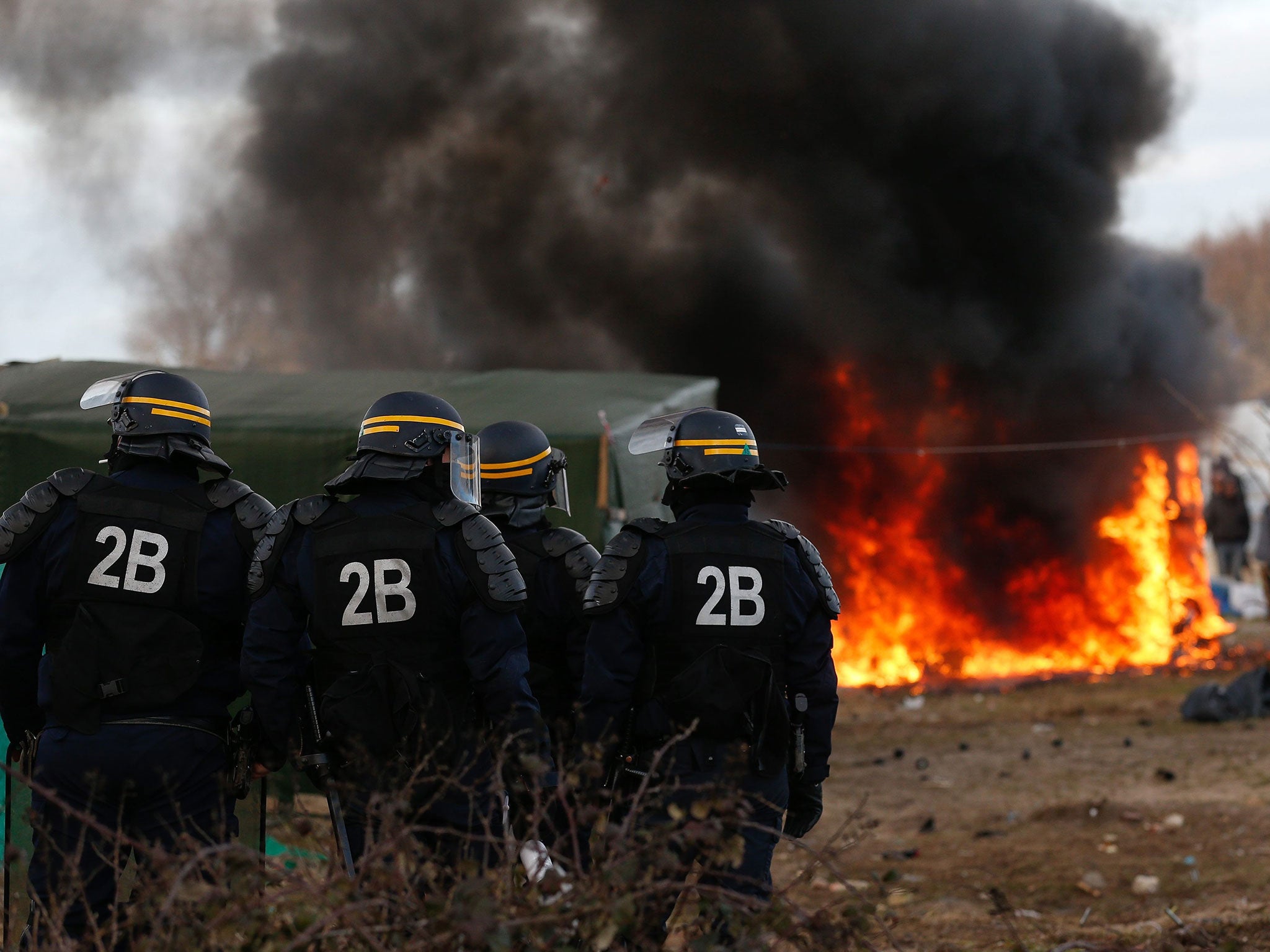Calais ‘Jungle': 75% of refugees have 'experienced police violence'
Yvette Cooper, chair of Labour's refugee taskforce, said the findings were 'appalling'

Your support helps us to tell the story
From reproductive rights to climate change to Big Tech, The Independent is on the ground when the story is developing. Whether it's investigating the financials of Elon Musk's pro-Trump PAC or producing our latest documentary, 'The A Word', which shines a light on the American women fighting for reproductive rights, we know how important it is to parse out the facts from the messaging.
At such a critical moment in US history, we need reporters on the ground. Your donation allows us to keep sending journalists to speak to both sides of the story.
The Independent is trusted by Americans across the entire political spectrum. And unlike many other quality news outlets, we choose not to lock Americans out of our reporting and analysis with paywalls. We believe quality journalism should be available to everyone, paid for by those who can afford it.
Your support makes all the difference.More than three-quarters of refugees living in the Calais “Jungle” say they have experienced police violence, according to a report seen by The Independent.
The findings, collated by the Refugee Rights Data Project (RRDP), provide a damning insight into the continuing “humanitarian crisis” at the refugee camp in northern France.
Police violence was allegedly experienced by 75.9 per cent of the 870 individuals surveyed, which includes physical violence, verbal abuse, tear gas and sexual violence; 54.1 per cent said they “never feel safe”; 67.6 per cent said they resort to “using blankets or burning rubbish to keep warm”; and 76.7 per cent reported suffering from various health issues – largely attributed to the camp’s “unhealthy environment”.
Marta Welander, founder of the RRDP, said in a statement: "Our first-hand data collection study is the first of its kind to reveal a significant selection of facts and figures about one of the biggest refugee camps in Europe.
“We hope that this data can help inform the public debate, and guide policy-makers closer to achieving a sustainable, efficient resolution to the current humanitarian crisis unfolding in Calais."
Yvette Cooper, chair of Labour's refugee taskforce, described the revelations as “appalling” news. Ms Cooper told The Independent: “No one should be living in the sorts of conditions I’ve seen in the Calais jungle, and it is particularly shameful that over 650 children have been living in the jungle in these conditions, many for months on end.
“It is appalling that the French have still not put in place proper child protection measures in place. But British Ministers should be urging action from the French Government, as well as sorting out the broken family reunification system for those with relatives here.”
The report, titled "The Long Wait: Filling the data gaps relating to refugees and displaced people in the Calais camp", was conducted by 20 academic researchers in February. Since then, the southern part of the camp has been demolished and 129 unaccompanied children have gone missing.
Police evicted parts of the Calais camp using tear gas
French police forcibly evicted refugees from the “Jungle” camp using tear gas, rubber bullets and water cannon at the end of February. A census by Help Refugees UK last week found that since the demolition took place in March, 4,946 refugees are still living there, including 1,400 in the shipping containers set up by the French government.
The United Nations Refugee Agency (UNHCR) collects statistics about refugee camps around the world, but because the Calais “Jungle” is considered unofficial, data about it is not collected. The report states the lack of information means people in the camp are “incredibly vulnerable” – a significant proportion of whom unaccompanied children.

Lliana Bird, co-founder of Help Refugees UK, told The Independent: "It is shocking that vulnerable people escaping terror, conflict and persecution arrive in the safety of Europe only to face further human right's abuses. We are grateful to the Refugee Rights Data Project for shining a much needed light on this issue.
"We remain deeply concerned for the physical and mental wellbeing of the 4946 refugees in Calais, in particular the 294 unaccompanied children, and believe that the French and British governments’ continued failure to provide residents with clear information regarding their rights only serves to add to their trauma.”
Of the surveyed population, 72.6 per cent said the treatment they receive from police was "bad" or worse. Ages spanned from 12 to 65 years old, with the average age of all respondents was 25.5 years, and 14.4 per cent under the age 18. A third of men, women and children had been in the camp for more than six months.
Join our commenting forum
Join thought-provoking conversations, follow other Independent readers and see their replies
0Comments